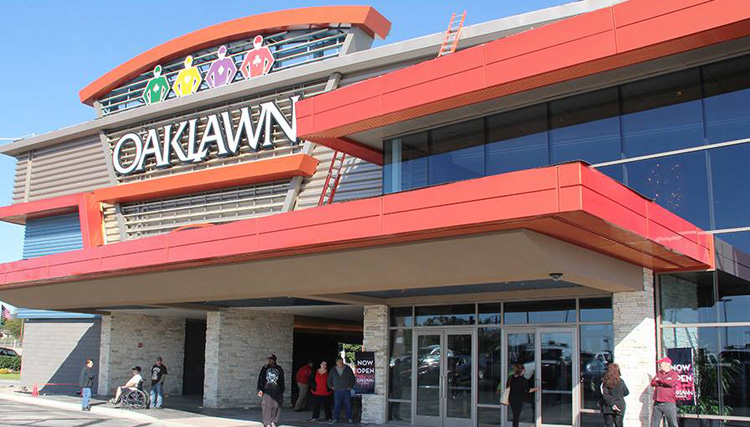A non-Indian gaming facility is being blamed by the Quapaw Tribe of Oklahoma for impeding its land-into-trust efforts in Arkansas.
It’s been two years since the Quapaw Tribe filed a land-into-trust application for 160 acres of former reservation land it owns near the Little Rock Port Authority. The tribe’s chairman, John Berrey, now partly blames Oaklawn Park Racing & Gaming in Hot Springs for the delay and on Thursday provided more indication that the casino and race track has an interest in the potential gambling activities of the tribe in Arkansas.
A Freedom of Information Act (FOIA) request (pdf) by Oaklawn’s lawyer, Walter Ebel of the Friday Law Firm in Little Rock, was provided anonymously to Berrey’s office in Oklahoma and names “Oaklawn Jockey Club, Inc.” as the client seeking the information. The request goes on to state that they will, “pay all applicable fees up to a maximum of Ten Thousand Dollars ($10,000.00),” as reported by the Arkansas Times. Spokesman for the tribe, Sean Harrison, said the FOIA request confirms what the tribe suspected, that Oaklawn is behind the opposition to its trust application. He goes on to state that Oaklawn has benefitted from its relationship with Arkansas and they want to protect their monopoly, even though the tribe has offered to put in writing that it promises not to build a casino. Harrison said that if the state ever decides to change its gaming statutes, for the better, the Quapaw Tribe “would throw our name in the hat and offer to improve the lives of all Arkansans.”
Harrison reiterated that tribe has no plans for using the land it purchased near the Little Rock Port for gambling. Trust status would allow the tribe autonomy of the land’s use. This hasn’t slowed efforts to force the tribe, if trust status is approved, to enter into a binding agreement on how it will use the land. Just days after Arkansas’s congressional delegation spoke against the land being placed in federal trust status, Berrey proposed a memorandum of understanding (MoU) between the tribe and the Little Rock Port Authority to put it in writing that the land adjacent to the Port Authority wouldn’t be used for a casino. In January, pursuit of the MoU was ended by the Port Authority and it passed a resolution putting off the MoU until the tribe’s federal status is granted. Berrey believes Oaklawn Park is partly responsible for the Port Authority’s rejection of the offer by the Quapaw tribe, now citing the request made by Oaklawn’s attorney for the FOIA.
In an interview with KATV Little Rock, Berrey said, “Oaklawn has poisoned our relationship with the port board.” The FOIA request received by Berrey probes a 2014 legal opinion the tribe received from the National Indian Gaming Commission (NIGC) regarding whether or not land the tribe owned on the Kansas border qualified as sovereign land eligible for gaming purposes under the Indian Regulatory Gamming Act. Berrey said, “They’re FOIA’ing litigation that we’re involved in, in Kansas that has nothing to do with the State of Arkansas.”
While casino gambling is strictly prohibited in Arkansas, the law does allow facilties that have parimutuel wagering on dog and horse races, currently only Southland Park in West Memphis and Oaklawn, to also offer “electronic games of skill.” Included are machines for blackjack and video poker and slot machines.
Meanwhile, in January, Kansas Attorney General Derek Schmidt and the Cherokee County Commission filed notice in U.S. District Court in Topeka that they would appeal a federal judge’s dismissal of their lawsuit that challenges the Quapaw Tribe’s plan to expand its Downstream Casino Resort into Kansas.



